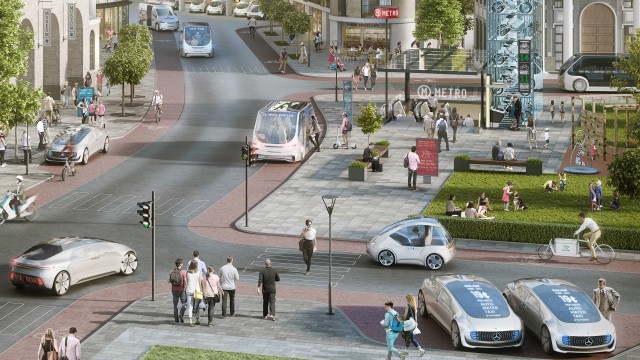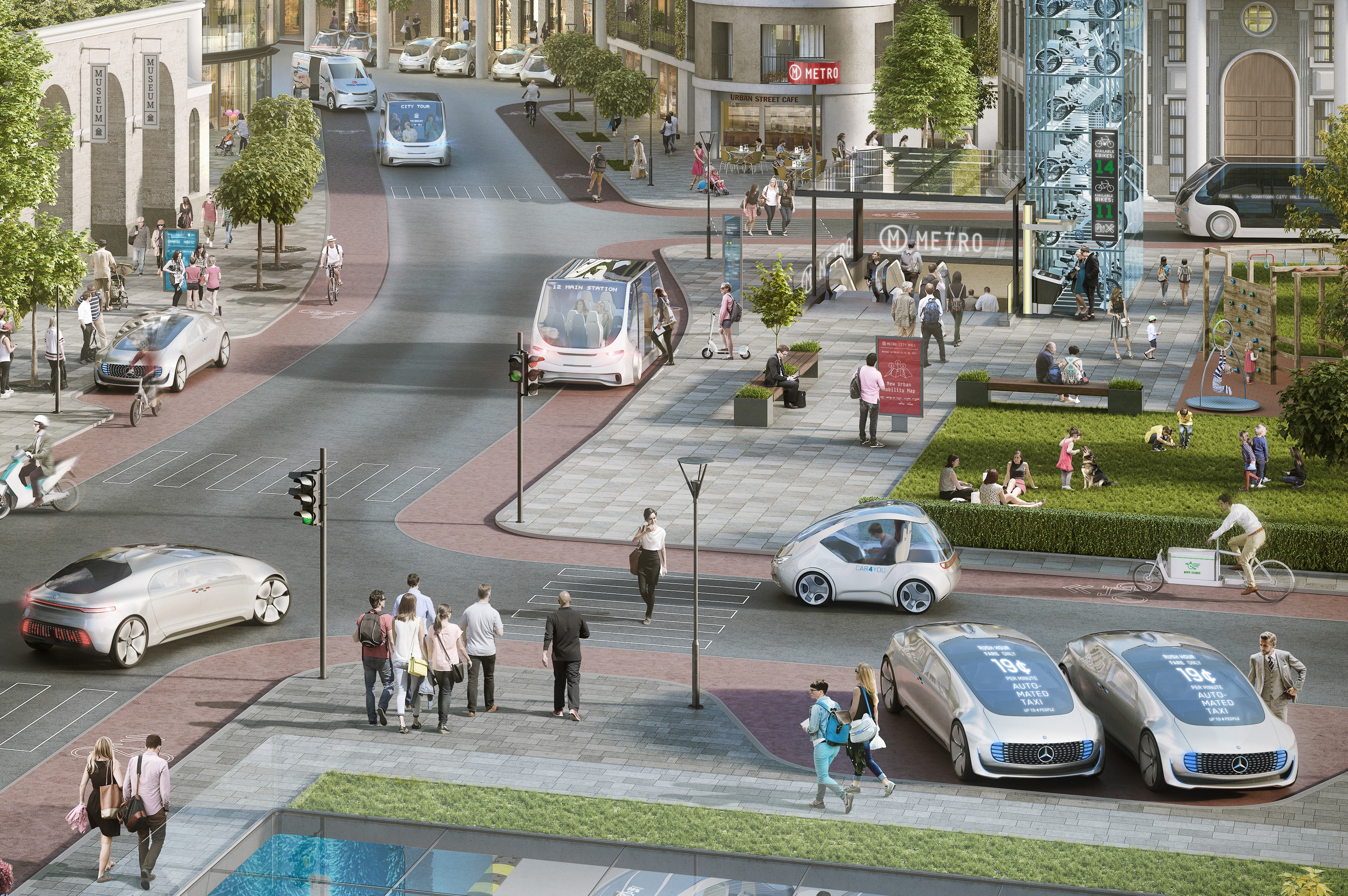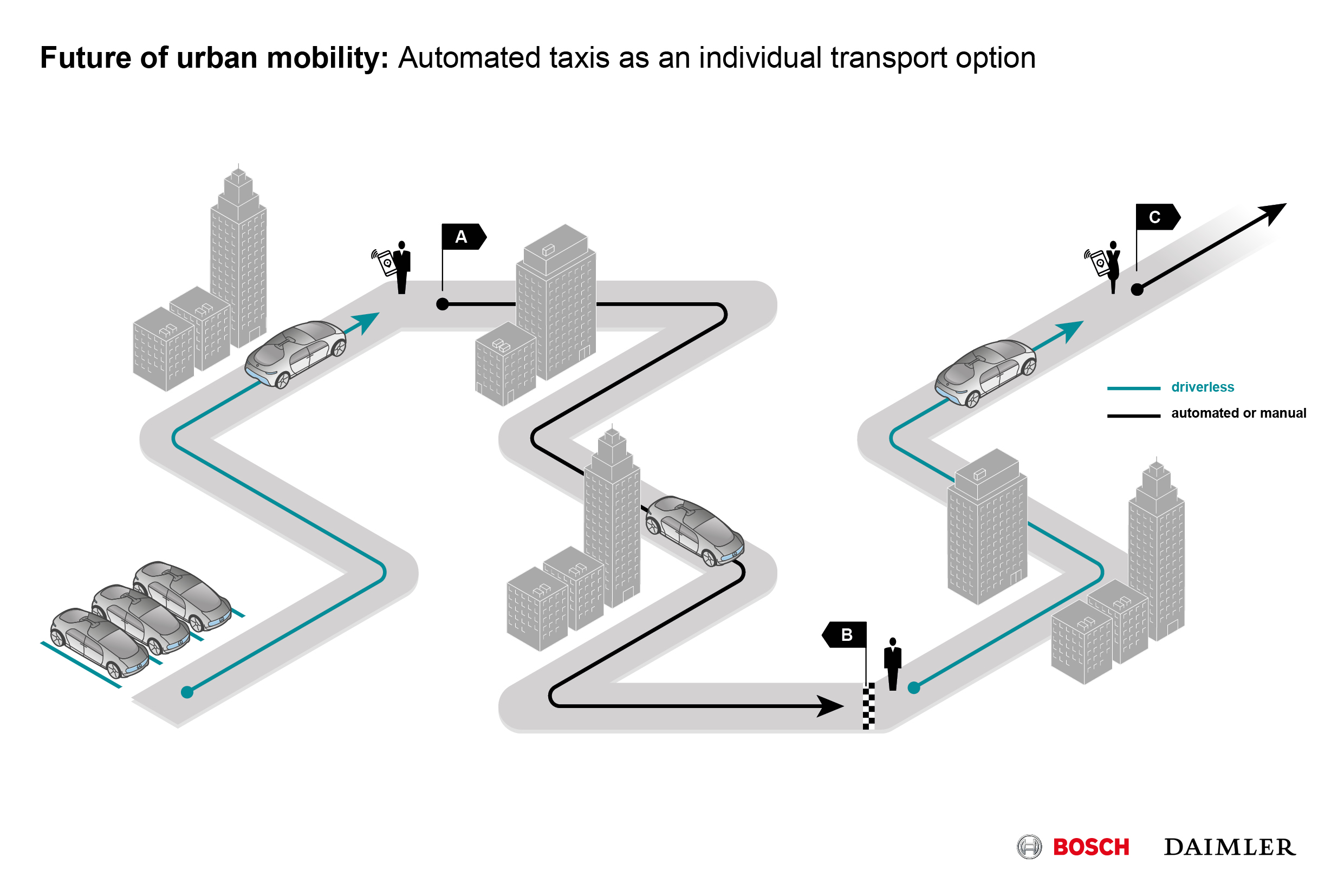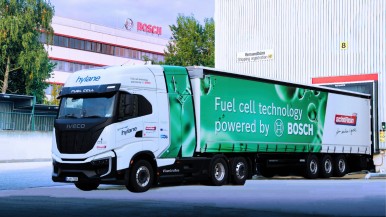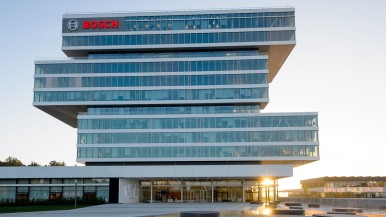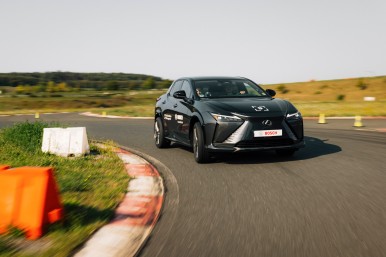Stuttgart, Germany – Bosch and Daimler are working together to take the development of fully automated, driverless vehicles forward. The two companies have now agreed to set up a development alliance that aims to make a system for fully automated (SAE-Level 4) and driverless (SAE-Level 5) vehicles a reality on city streets by the start of the next decade. The objective is the joint development of software and algorithms for an autonomous driving system. The project will take the comprehensive vehicle expertise of Daimler – the world’s leading premium-class automaker – and combine it with the systems and hardware expertise of Bosch, the world’s biggest automotive supplier. The synergies that arise as a result will be channeled into making this technology ready for production as early as possible.
The car comes to the driver
In promoting a system for fully automated, driverless vehicles for city driving, Bosch and Daimler want to improve urban traffic flows, enhance road safety, and provide an important building block for the traffic of the future. Among other things, the technology will increase the attractiveness of car sharing. It will allow people to make optimum use of the time they spend in cars, and open up new ways of being mobile to people without driver’s licenses. The project’s main aim is to make a driving system ready for production, as a result of which vehicles will be able to drive completely autonomously in cities. The idea behind it is that the vehicle will come to the driver, not the other way around. Within a predetermined urban area, people can conveniently use their smartphones to book a car share or an urban automated taxi that comes to them ready to take them to their destination.
Mobility is the largest Bosch Group business sector. It generated sales of 55.8 billion euros in 2024, and thus contributed around 62 percent of total sales. This makes the Bosch Group one of the leading mobility suppliers. Bosch Mobility pursues a vision of mobility that is safe, sustainable, and exciting. For its customers, the outcome is integrated mobility solutions. The business sector’s main areas of activity are electrification, software and services, semiconductors and sensors, vehicle computers, advanced driver assistance systems, systems for vehicle dynamics control, repair-shop concepts, as well as technology and services for the automotive aftermarket and fleets. Bosch is synonymous with important automotive innovations, such as electronic engine management, the ESP anti-skid system, and common-rail diesel technology.
The Bosch Group is a leading global supplier of technology and services. It employs roughly 418,000 associates worldwide (as of December 31, 2024). The company generated sales of 90.3 billion euros in 2024. Its operations are divided into four business sectors: Mobility, Industrial Technology, Consumer Goods, and Energy and Building Technology. With its business activities, the company aims to use technology to help shape universal trends such as automation, electrification, digitalization, connectivity, and an orientation to sustainability. In this context, Bosch’s broad diversification across regions and industries strengthens its innovativeness and robustness. Bosch uses its proven expertise in sensor technology, software, and services to offer customers cross-domain solutions from a single source. It also applies its expertise in connectivity and artificial intelligence in order to develop and manufacture user-friendly, sustainable products. With technology that is “Invented for life,” Bosch wants to help improve quality of life and conserve natural resources. The Bosch Group comprises Robert Bosch GmbH and its roughly 490 subsidiary and regional companies in over 60 countries. Including sales and service partners, Bosch’s global manufacturing, engineering, and sales network covers nearly every country in the world. Bosch’s innovative strength is key to the company’s further development. At 136 locations across the globe, Bosch employs some 87,000 associates in research and development.
Additional information is available online at www.bosch.com, www.bosch-press.com.
